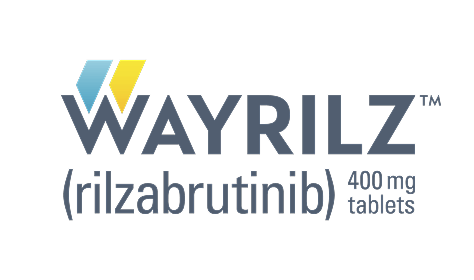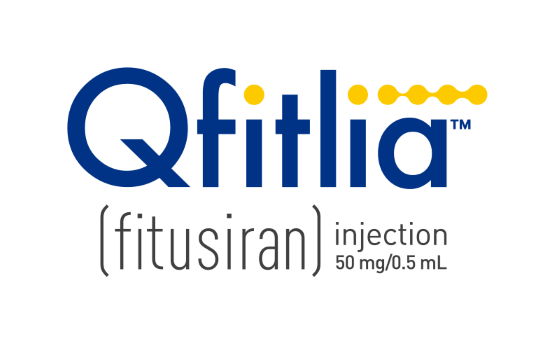Our treatments
Our rare blood disorder treatments

At Sanofi, our commitment to patients with rare blood disorders is personal. It’s what drives us year after year to keep looking for the next breakthrough and to meet the needs of people impacted by rare blood disorders.
Learn more about each treatment


![ALTUVIIIO<sup class='sup'>®</sup> [antihemophilic factor (recombinant), Fc-VWF-XTEN fusion protein-ehtl] Logo](/_nuxt/img/altuviiio-logo.6ba8af0.png)
![ALPROLIX<sup class='sup'>®</sup> [Coagulation Factor IX (Recombinant), Fc Fusion Protein] Logo](/_nuxt/img/alprolix.18cf333.jpg)

![ELOCTATE<sup class='sup'>®</sup> [Antihemophilic Factor (Recombinant), Fc Fusion Protein] Logo](/_nuxt/img/eloctate.13a74c6.jpg)




have liver problems
have kidney problems
are pregnant or plan to become pregnant. WAYRILZ may harm your unborn baby. If you are able to have a baby, your healthcare provider will do a pregnancy test before starting treatment with WAYRILZ. Females who are able to become pregnant should use an effective birth control during treatment with WAYRILZ and for 1 week after the last dose.
are breastfeeding or plan to breastfeed. Do not breastfeed during treatment with WAYRILZ and for at least 1 week after the last dose.
Serious infections. WAYRILZ can increase the risk of infections, including serious infections that can lead to death. Your healthcare provider will check you for signs and symptoms of infection during your treatment with WAYRILZ. Tell your healthcare provider right away if you get any signs or symptoms of infection, including fever, chills, or flu-like symptoms.
Liver problems including Drug-Induced Liver Injury (DILI). Liver problems, which may be severe, life-threatening, or lead to death have happened in people treated with Bruton’s tyrosine kinase (BTK) inhibitors. Your healthcare provider will do blood tests to check your liver before and as necessary during treatment with WAYRILZ. Tell your healthcare provider right away if you have any signs or symptoms of liver problems, including stomach-area (abdominal) pain or discomfort, dark or “tea-colored” urine, or yellowing of the skin or the white part of your eyes.
Abnormal blood clotting (thrombotic events): Serious blood clots have occurred in people treated with Qfitlia. Qfitlia can cause blood clots to form in the blood vessels in your arms, legs, lungs, heart, brain, eyes, or head. Your risk of blood clots is greater if your antithrombin (AT) blood level is persistently less than 15% or if you have certain other conditions. Your healthcare provider (HCP) will check your AT blood levels before and during treatment with Qfitlia.
Gallbladder disease: Qfitlia can cause gallstones and inflammation of your gallbladder, which might require surgery to remove your gallbladder. Tell your HCP right away if you develop stomach pain, indigestion, nausea, or vomiting. Your HCP may temporarily or permanently stop Qfitlia if you develop any of these symptoms.
Swelling, pain, or redness in arms or legs
Coughing up blood
Shortness of breath
Severe chest pain or tightness of the chest
Fast heart rate
Feeling faint or passing out
Severe or persistent headache
Difficulty speaking or understanding language
Feeling confused
Numbness or weakness in your face, arms, or legs
Sudden loss or changes in your vision, eye pain, or swelling
Qfitlia can cause other serious side effects, including an increase in your blood liver enzymes. Your HCP will do blood tests to check your liver function before and during treatment with Qfitlia.
The most common side effects of Qfitlia include viral infection, common cold symptoms, and bacterial infection.
Tell your HCP about all of your medical conditions, including if you have liver problems, a history of gallbladder disease, are pregnant or plan to become pregnant, or are breastfeeding or plan to breastfeed.
Females who are able to become pregnant: Hormonal birth control may increase your risk of blood clots if used during treatment with Qfitlia. Talk to your HCP about effective forms of non-hormonal birth control you can use before starting and during treatment with Qfitlia.
Tell your HCP about all of the medicines you take, including prescription and over-the-counter medicines, vitamins, and herbal supplements.
have liver problems
have kidney problems
are pregnant or plan to become pregnant. WAYRILZ may harm your unborn baby. If you are able to have a baby, your healthcare provider will do a pregnancy test before starting treatment with WAYRILZ. Females who are able to become pregnant should use an effective birth control during treatment with WAYRILZ and for 1 week after the last dose.
are breastfeeding or plan to breastfeed. Do not breastfeed during treatment with WAYRILZ and for at least 1 week after the last dose.
Serious infections. WAYRILZ can increase the risk of infections, including serious infections that can lead to death. Your healthcare provider will check you for signs and symptoms of infection during your treatment with WAYRILZ. Tell your healthcare provider right away if you get any signs or symptoms of infection, including fever, chills, or flu-like symptoms.
Liver problems including Drug-Induced Liver Injury (DILI). Liver problems, which may be severe, life-threatening, or lead to death have happened in people treated with Bruton’s tyrosine kinase (BTK) inhibitors. Your healthcare provider will do blood tests to check your liver before and as necessary during treatment with WAYRILZ. Tell your healthcare provider right away if you have any signs or symptoms of liver problems, including stomach-area (abdominal) pain or discomfort, dark or “tea-colored” urine, or yellowing of the skin or the white part of your eyes.
Abnormal blood clotting (thrombotic events): Serious blood clots have occurred in people treated with Qfitlia. Qfitlia can cause blood clots to form in the blood vessels in your arms, legs, lungs, heart, brain, eyes, or head. Your risk of blood clots is greater if your antithrombin (AT) blood level is persistently less than 15% or if you have certain other conditions. Your healthcare provider (HCP) will check your AT blood levels before and during treatment with Qfitlia.
Gallbladder disease: Qfitlia can cause gallstones and inflammation of your gallbladder, which might require surgery to remove your gallbladder. Tell your HCP right away if you develop stomach pain, indigestion, nausea, or vomiting. Your HCP may temporarily or permanently stop Qfitlia if you develop any of these symptoms.
Swelling, pain, or redness in arms or legs
Coughing up blood
Shortness of breath
Severe chest pain or tightness of the chest
Fast heart rate
Feeling faint or passing out
Severe or persistent headache
Difficulty speaking or understanding language
Feeling confused
Numbness or weakness in your face, arms, or legs
Sudden loss or changes in your vision, eye pain, or swelling
Qfitlia can cause other serious side effects, including an increase in your blood liver enzymes. Your HCP will do blood tests to check your liver function before and during treatment with Qfitlia.
The most common side effects of Qfitlia include viral infection, common cold symptoms, and bacterial infection.
Tell your HCP about all of your medical conditions, including if you have liver problems, a history of gallbladder disease, are pregnant or plan to become pregnant, or are breastfeeding or plan to breastfeed.
Females who are able to become pregnant: Hormonal birth control may increase your risk of blood clots if used during treatment with Qfitlia. Talk to your HCP about effective forms of non-hormonal birth control you can use before starting and during treatment with Qfitlia.
Tell your HCP about all of the medicines you take, including prescription and over-the-counter medicines, vitamins, and herbal supplements.
- Sitemap |
- Legal Notice |
- Privacy Policy |
- Consumer Health Data Privacy Policy |
- Contact |
- Cookies Policy |
This site is intended for U.S. residents only.
© 2025 Sanofi. All rights reserved.
Alprolix, Altuviiio, Cablivi, Eloctate, Qfitlia, Sanofi, and Wayrilz are trademarks of Sanofi or an affiliate.
All other trademarks are the property of their respective owners.
MAT-US-2309554-v6.0-09/2025
Important safety information and indication
Important Safety Information
What is the most important information I need to know about ALTUVIIIO?
Do not attempt to give yourself an injection unless you have been taught how by your healthcare provider or hemophilia center. You must carefully follow your healthcare provider's instructions regarding the dose and schedule for injecting ALTUVIIIO so that your treatment will work best for you.
Who should not use ALTUVIIIO?
You should not use ALTUVIIIO if you have had an allergic reaction to it in the past.
What should I tell my healthcare provider before using ALTUVIIIO?
Tell your healthcare provider if you have had any medical problems, take any medications, including prescription and non-prescription medicines, supplements, or herbal medicines, are breastfeeding, or are pregnant or planning to become pregnant.
What are the possible side effects of ALTUVIIIO?
You can have an allergic reaction to ALTUVIIIO. Call your healthcare provider or emergency department right away if you have any of the following symptoms: difficulty breathing, chest tightness, swelling of the face, rash, or hives.
Your body can also make antibodies called “inhibitors” against ALTUVIIIO. This can stop ALTUVIIIO from working properly. Your healthcare provider may give you blood tests to check for inhibitors.
The common side effects of ALTUVIIIO are headache, joint pain, and back pain.
These are not the only possible side effects of ALTUVIIIO. Tell your healthcare provider about any side effect that bothers you or does not go away.
Indication
ALTUVIIIO® [antihemophilic factor (recombinant), Fc-VWF-XTEN fusion protein-ehtl] is an injectable medicine that is used to control and reduce the number of bleeding episodes in people with hemophilia A (congenital Factor VIII deficiency).
Your healthcare provider may give you ALTUVIIIO when you have surgery.
Please see full Prescribing Information.

© 2023 Genzyme Corporation. All rights reserved. ALTUVIIIO and
Sanofi are trademarks of Sanofi or an affiliate.
MAT-US-2300536-v1.0-03/2023

